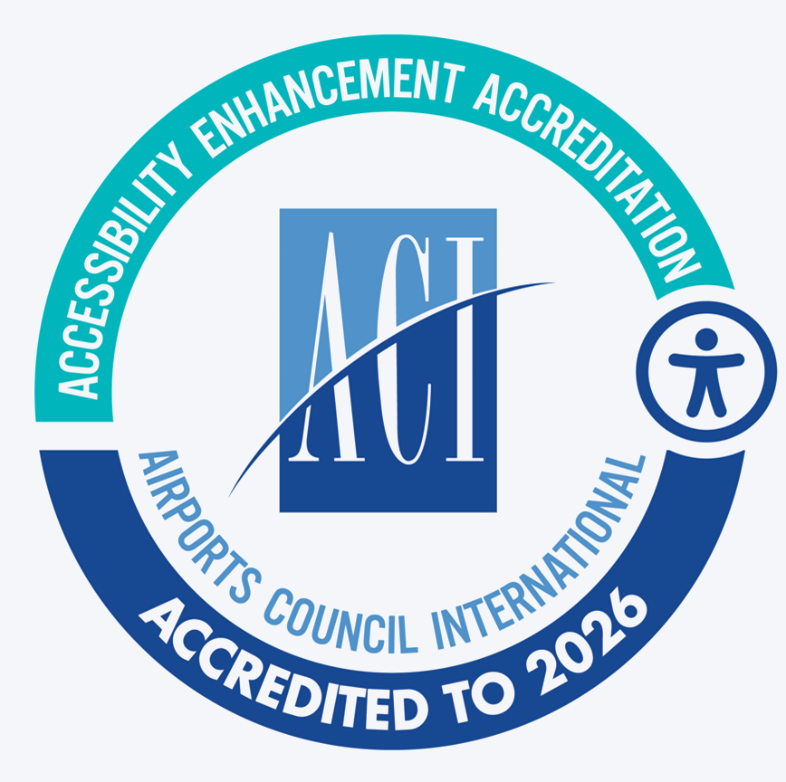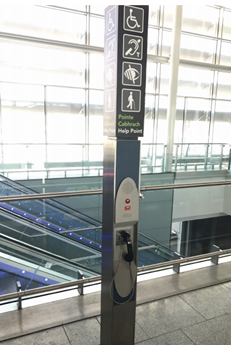
Access to transport is a recognized right for all people, but today there are still significant difficulties for people with disabilities and reduced mobility—including elderly—to access air transport services. This prevalence is expected to increase due to demographic trends and increases in chronic health conditions, among other factors. The World Health Organization estimated a total of 1.3 billion people—or one in six people worldwide—experiencing significant disability by the end of 2022.
ACI World’s Accessibility Enhancement Accreditation (AEA) program provides a continuous path of improvement for airports in the area of accessibility for passengers with disabilities.
It is designed to help airports measure, evaluate, and improve their accessibility management and culture, and it is the only international assessment/accreditation program dedicated to airport accessibility to passengers with disabilities.
Airport benefits
The Accessibility Enhancement Accreditation (AEA) provides several benefits to airports of all sizes, in every region of the world:
Facilitates access to a safe and positive travelling experience for travellers with disabilities
Showcases an airport's inclusive culture
Helps airports incorporate the concepts of Universal Design in line with the United Nations’ Convention on the Rights of Persons with Disabilities (CRPD) and their national regulations
Assists airports in implementing existing global best practices and recommendations, including those put forward in the ACI Airport and Persons with Disability Handbook

Accreditation content
It is imperative that airports ensure they are prioritizing National Regulations on the matter of accessibility. The program is based on existing international best practices and recommendations, including those put forward in the ACI Airport and Persons with Disability Handbook, the United Nations’ Convention on the Rights of Persons with Disabilities (CRPD), and Universal Design concepts.
The accreditation covers improvement in the following areas:
Accessibility policy plans and governance
Airport design and infrastructure
Organizational culture and operations
Airport stakeholders and partners
Information, Communication and Technologies (ICT) to support the passenger journey
Customer experience
Forms of disabilities considered in the program:
Physical
Restricted growth
Users of pacemakers
Dexterity & agility difficulties
Epilepsy
Respiratory conditions
Temporary injuries
People with reduced mobility
Hearing
Visual
Mental development, intellectual
Accreditation levels
The journey to improve airports' accessibility
Level 1
Indicates airport's corporate commitment to accessibility services through its strategy, policies, and initial implementations. Covers in large part, the services for people with reduced mobility.
Level 2
Indicates airport is prioritizing accessibility through an accessibility plan, governance framework, and training. Provides services for several disabilities and enhances the passenger journey through Digital Accessibility or Universal Design.
Level 3
Indicates airport and its partners' commitment to accessibility by aiming to continuously enhance a seamless travel experience through innovation, Digital Accessibility, Universal Design, and the establishment of an inclusive culture for all types of disabilities.
Accreditation process
The process usually takes one to two weeks from request to completion, depending on the size of the airport and the length of time taken by the airport to gather the supporting evidence.
The accreditation includes the following steps:
Questionnaire: airports complete and submit a questionnaire developed with the support of the ACI Accessibility Advisory Group, which includes representatives from member airports, training providers, consultants, and accessibility organizations. Supporting evidence must also be submitted.
Online interview / assessment: independent subject matter experts perform an online validation interview and evaluate the questionnaires, providing recommendations and/or approving the accreditation.
Certificate: provided by ACI and valid for 3 years.
Updates and reviews: performed during the validity period of the accreditation.
For questions about the Accessibility Enhancement Accreditation program, email assessments.accreditations@aci.aero.
